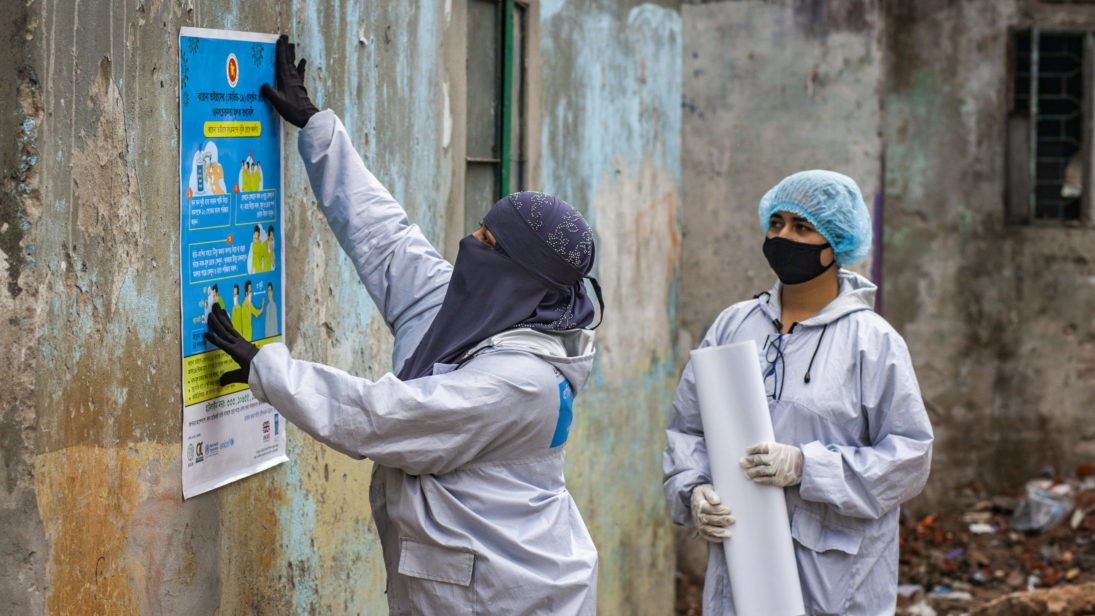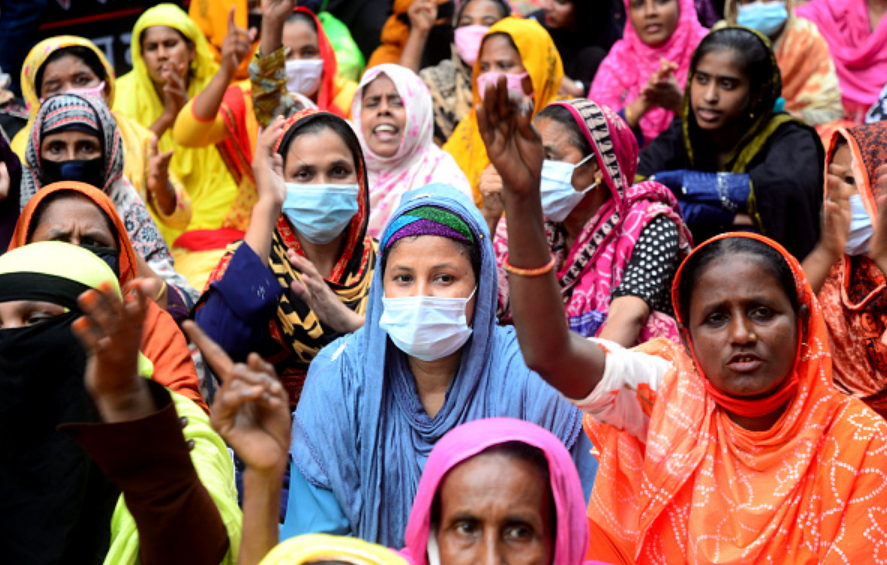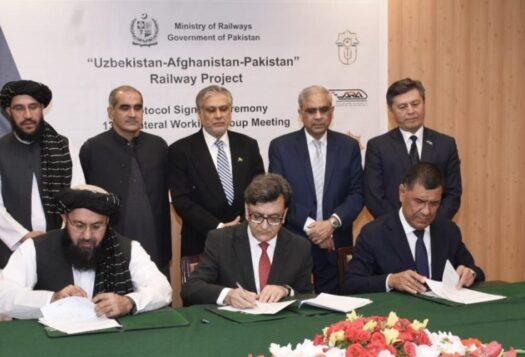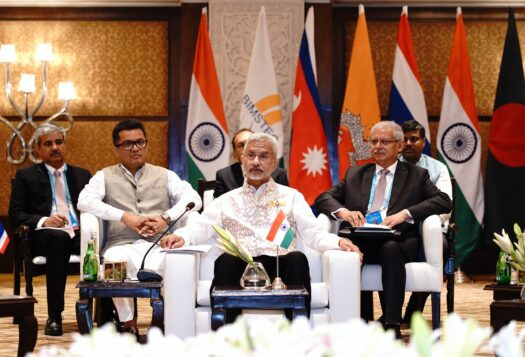
As is the case with most of the world, Bangladesh has been hit hard by the Covid-19 pandemic. While official statistics point to over 300,000 cases and approximately 4,200 deaths, questions have been raised about the veracity of these numbers. A recent study noted that a significant chunk of the capital Dhaka’s populace, one of the most densely populated cities in the world, could be asymptomatic carriers of Covid-19.
While Bangladesh is not unique in having difficulty coping with the many challenges associated with the Covid-19 pandemic, matters have not been helped by years of neglect to its healthcare system. The inability to scale up testing has remained a significant roadblock in ascertaining a true picture of how far the pandemic has reached all across Bangladesh. Indeed, many deaths have not been counted as Covid-19 induced deaths due to the lack of testing.
Although it is early to draw any lasting conclusions on Covid-19’s complete impact on Bangladesh, the early signs point toward an increasingly complicated geopolitical future. Challenges of yesteryear remain for the country, but now with additional twists, such as a strained economy, which may change fundamental geopolitical and domestic dynamics that have shaped Bangladeshi society in the past several years. On the geopolitical level, competition between China and India for influence in Bangladesh has only continued during the pandemic. Domestically, the unspoken agreement that the Bangladeshi government and people have had, where development has been advanced at the expense of rights could disintegrate as the economy suffers, and risk exacerbating widespread unrest.
Domestically, the unspoken agreement that the Bangladeshi government and people have had, where development has been advanced at the expense of rights, could disintegrate as the economy suffers and risk exacerbating widespread unrest.
The COVID-19 Economic Picture
In response to the serious health concerns, Bangladesh implemented a “general holiday”, accompanied by local lockdowns, resulting in a prolonged shutdown of businesses, public transportation and educational institutions. While the lockdowns have not been extended since May 30, except for a few select areas, prospects for Bangladesh’s economic growth have dimmed. While the government has decided against any further extensions of the “general holiday,” this may not be the most prudent decision based on public health needs, rather, it could be motivated by the government’s aim of keeping Bangladesh on track to be a middle income country by 2024. However, this goal may also be hampered by the many cancellations Bangladeshi textile exporters – one of Bangladesh’s central industries – during the pandemic. Further, catastrophic floods, as well as tropical Cyclone Amphan have displaced millions of people who, even in the best of times would have struggled mightily to survive. While early preparedness measures helped save many lives, the strained government lacks the proper resources to take care of the millions who are still in danger during the current cyclone season.
In such a dire situation, the Bangladeshi government has put on a brave face to the world, claiming that it has the capability to face the pandemic. Even as the country struggles to cope with the effects of the pandemic, it sent food and medical aid to Lebanon in response to the Beirut explosion. While such acts are commendable during such a time of crisis, the reality on the ground does match the bravado on display. Revenue collection dropped significantly in the first quarter, while many Bangladeshis have begun pawning assets they may have to make ends meet. The slow pace at which the government’s stimulus package is being disbursed, is not doing much.
Balancing Sino-Indian Tensions
Amidst Bangladesh’s Covid-19 troubles, there is a possibility that the country could be increasingly entangled as a proxy in the Sino-Indo rivalry over influence in South Asia. Bangladesh has received many noteworthy concessions from China, such as a near USD $1 billion loan to upgrade its power grid, removal of tariffs on close to 8,000 of Bangladesh’s exports to China as well as a contract to build an airport terminal in Sylhet, close to the Bangladesh-India border. All of these developments, coupled with Bangladesh’s increased cooperation with China on military matters, has caused a stir in New Delhi. The outgoing Indian High Commissioner in Dhaka could not even secure a meeting with Prime Minister Sheikh Hasina despite repeated requests.
Prior to the Covid-19 pandemic, Bangladesh-India ties were already strained with India’s Assam National Register of Citizens (NRC). While the Bangladeshi government has stated that controversial laws such as the India’s NRC are an internal matter, Bangladesh has also asked for written assurances that those rendered stateless by the NRC would not be sent to Bangladesh. Statements such as those from Amit Shah, terming people who illegally entered India’s northeastern state of Assam from Bangladesh as “termites” has not helped matters. While Bangladeshi Foreign Minister Abdul Momen recently said that Indo-Bangla ties are tied by blood, it is reasonable to ask whether strained relations between Dhaka and New Delhi will make way for Beijing will gain preeminent status in Bangladesh.
Both China and India have donated Covid-19 related medical aid to Bangladesh, and India has also promised Bangladesh early access to a successful vaccine as well. Although Bangladesh’s government initially responded positively to the Chinese biotech company Sinovac’s request for administering a COVID-19 vaccine trial in the country, it only recently granted final approval for the trial, with the Prime Minister having been consulted on the decision. India’s reservations over Sinovac’s vaccine trial seems to have fallen to deaf ears. Bangladesh is poised to receive critical benefits from both Beijing and New Delhi if it plays its cards right. Overall, the COVID-19 pandemic has added a new layer of complexity to Bangladesh’s relations with its neighbors. Switching Bangladesh’s foreign policy in favor of China over India will be no easy or quick task, but it seems that China is determined to dislodge New Delhi’s influence in Dhaka.

Covid-19 and Domestic Politics
To further complicate matters, the Covid-19 pandemic has not halted government actions against dissidents in the country. Recently, Amnesty International highlighted Bangladesh’s enhanced use of the controversial Digital Security Act to stifle dissent in Bangladesh, which has escalated during the pandemic. Journalists and activists have been detained without trial under the provisions of this controversial law, far beyond the limits of international law. Even though Bangladesh is reeling from the effects of the Covid-19 pandemic, recently, writers, cartoonists, and journalists were jailed, for “carrying out anti-government activities.” Even amidst the pandemic, Bangladesh’s government has not moderated its heavy-handed approach toward any perceived dissent.
New dynamics during the pandemic, such as increased Sino-Indo competition in South Asia, the economic fallout, as well as possible civilian-military tussles, and an increasingly heavy-handed approach toward dissent could create an environment for substantial unrest once the Covid-19 pandemic is clear.
The general law and order situation in Bangladesh has deteriorated, fueled in part by the frustrations over the sudden change in people’s economic fortunes, since the onset of Covid-19 related restrictions in the country. However, the government is still focused on crushing dissident voices, an approach which is not helpful during these trying times, when critical resources could be dedicated to other important purposes. During the pandemic, the ever-present phenomena of extra-judicial killings in Bangladesh has been placed under a spotlight after the killing of a retired Bangladesh Army Major Sinha Mohammad Rashed Khan in Teknaf, located in southern Bangladesh. While the exact facts remain murky, the police accused Major Sinha of having illicit substances in his possession, a claim which has been disputed by a witness. While Bangladesh’s Army Chief has played down the matter, calling it an “isolated incident,” a group of retired Army officers, have taken it upon themselves to monitor the upcoming trial. The killing of Major Sinha has angered people who have far too often read news of extra-judicial killings, and have called for action but have not seen any, and the trial may set an important precedent on how police extra-judicial killings are adjudicated in Bangladesh.
Overall, the Covid-19 pandemic has added another layer of complexity into the already convoluted question of what lays ahead for Bangladesh. Only two years ago, concerns with Bangladesh were centered around mass protests in the country over road safety. Prior to that, fears focused on the rise of extremism in the country and the increasingly authoritarian bent in the ruling party. While these may be matters of the past, there is good reason to remain alert that after the worst of the Covid-19 pandemic passes, these issues will come back up onto the surface. New dynamics during the pandemic, such as increased Sino-Indo competition in South Asia, the economic fallout, as well as possible civilian-military tussles, and an increasingly heavy-handed approach toward dissent could create an environment for substantial unrest once the Covid-19 pandemic is clear. While Bangladesh is relatively calm, with no major protests or terrorist attacks in recent years, as was seen during the road-safety protests two years ago, seemingly small incidents can have outsized consequences, which will be important to watch for in the future.
***
Image 1: UN Women Asia and Pacific via Flickr


